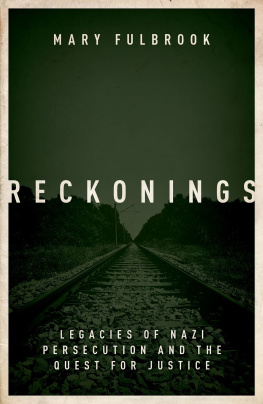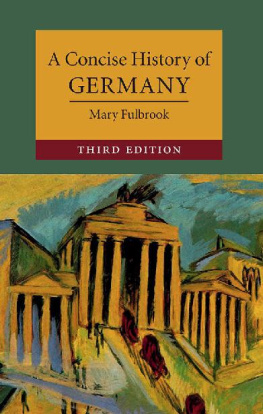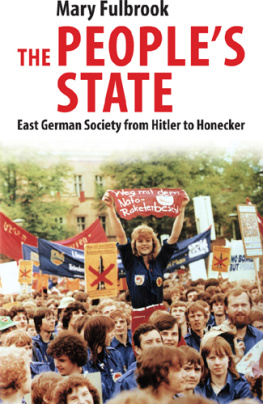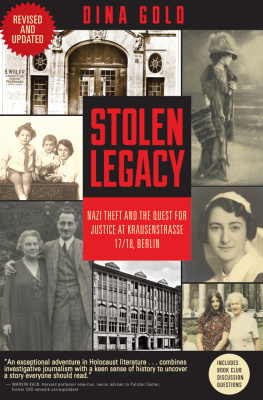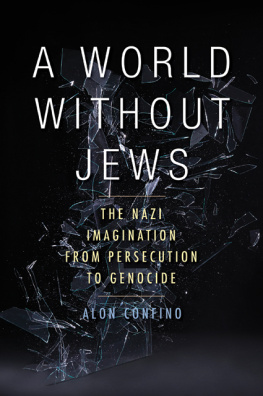Mary Fulbrook - Reckonings: Legacies of Nazi Persecution and the Quest for Justice
Here you can read online Mary Fulbrook - Reckonings: Legacies of Nazi Persecution and the Quest for Justice full text of the book (entire story) in english for free. Download pdf and epub, get meaning, cover and reviews about this ebook. year: 2018, publisher: OUP Oxford, genre: Politics. Description of the work, (preface) as well as reviews are available. Best literature library LitArk.com created for fans of good reading and offers a wide selection of genres:
Romance novel
Science fiction
Adventure
Detective
Science
History
Home and family
Prose
Art
Politics
Computer
Non-fiction
Religion
Business
Children
Humor
Choose a favorite category and find really read worthwhile books. Enjoy immersion in the world of imagination, feel the emotions of the characters or learn something new for yourself, make an fascinating discovery.
- Book:Reckonings: Legacies of Nazi Persecution and the Quest for Justice
- Author:
- Publisher:OUP Oxford
- Genre:
- Year:2018
- Rating:4 / 5
- Favourites:Add to favourites
- Your mark:
- 80
- 1
- 2
- 3
- 4
- 5
Reckonings: Legacies of Nazi Persecution and the Quest for Justice: summary, description and annotation
We offer to read an annotation, description, summary or preface (depends on what the author of the book "Reckonings: Legacies of Nazi Persecution and the Quest for Justice" wrote himself). If you haven't found the necessary information about the book — write in the comments, we will try to find it.
Reckonings: Legacies of Nazi Persecution and the Quest for Justice — read online for free the complete book (whole text) full work
Below is the text of the book, divided by pages. System saving the place of the last page read, allows you to conveniently read the book "Reckonings: Legacies of Nazi Persecution and the Quest for Justice" online for free, without having to search again every time where you left off. Put a bookmark, and you can go to the page where you finished reading at any time.
Font size:
Interval:
Bookmark:


Great Clarendon Street, Oxford, OX2 6DP, United Kingdom
Oxford University Press is a department of the University of Oxford. It furthers the Universitys objective of excellence in research, scholarship, and education by publishing worldwide. Oxford is a registered trade mark of Oxford University Press in the UK and in certain other countries
Mary Fulbrook 2018
The moral rights of the author have been asserted
First Edition published in 2018
Impression: 1
All rights reserved. No part of this publication may be reproduced, stored in a retrieval system, or transmitted, in any form or by any means, without the prior permission in writing of Oxford University Press, or as expressly permitted by law, by licence or under terms agreed with the appropriate reprographics rights organization. Enquiries concerning reproduction outside the scope of the above should be sent to the Rights Department, Oxford University Press, at the address above
You must not circulate this work in any other form and you must impose this same condition on any acquirer
Published in the United States of America by Oxford University Press 198 Madison Avenue, New York, NY 10016, United States of America
British Library Cataloguing in Publication Data
Data available
Library of Congress Control Number: 2017050473
ISBN 9780198811237
ebook ISBN 9780192539298
Printed and bound in Great Britain by CPI Group (UK) Ltd, Croydon, CR0 4YY
Links to third party websites are provided by Oxford in good faith and for information only. Oxford disclaims any responsibility for the materials contained in any third party website referenced in this work.
The enormity of the Holocaust is often summarized in one word: Auschwitz. Yet a focus primarily on this iconic site of evil tends to deflect attention from the myriad ways in which individuals became tangled up on the side of the perpetrators, as well as the diversity of experiences among a wide range of victims as they struggled and died, or managed to survive against all the odds. It also misses the continuing significance of Nazi persecution over time and across continents. The selective memorial landscape of Europe today, and the well-known cultural and public representations of this past, cannot do justice to the variety of subjective experiences and personal legacies of involvement in violence under Nazi rule. Reckoning with a still disturbing past entails a myriad of attempts to rectify continuing imbalances or to address a persisting sense of injustice, whether such attempts take place in courts of law or in personal accounts.
This was not an easy book to write. It addresses the distinctive character of involvement in the collective violence unleashed under Nazi rule and explores routes out of and beyond this period of terroron both sides of the chasm between perpetrators and persecuted. Reckonings tells the stories not only of well-known people and places but also of those who remained largely below the radar of public representations, outside the media spotlight. It explores how people were transformed by their experiences and how, under different later circumstances, they sought to reckon with the continuing implications of this past that refused to pass awayeven as states and judicial systems failed to bring many of the guilty to justice.
This is a perilous undertaking. The topic is enormous, the material potentially infinite. I have selected a range of examples, case studies illuminating a variety of themes, groups, and places, in order to convey both the broad patterning and varying individual responses to this deeply significant past. I have foregrounded these examples and explored the subjective experiences of those involved while only lightly sketching in the wider historical background, the policy decisions, strategies, and events on which there is a huge and ever-expanding literature. Periodically I have given pointers to relevant secondary sources but have nowhere sought to be exhaustive or comprehensive.
Reckonings paints a vast canvas. I am more than well aware of both the scale of the undertaking and the inevitable insufficiencies of the outcome. Any discussion of these issues will be inadequate to the immensity of the almost inexplicable cruelty and suffering with which it is concerned, and the difficulties of dealing with the long aftermath. It is virtually impossible to do justice to this pastnot only in the courts of law or in personal and cultural narratives but also in historical analyses. Nevertheless, it is important to understand the parameters of the persecution and collective violence that affected so many people and the lingering consequences that continue to affect us today.
Scholars at the time of the Hebrew Bible had already noted that of making many books there is no end, and much study is a weariness of the flesh (Ecclesiastes 12:12). This, of all books, feels like one that cannot ever, in principle, be finished; no analysis of this topic can be exhaustive or final. But there comes a point when it is important simply to stop, and to pass on the interim outcome of the exploration. It is my hope that, despite the selectivity and omissions that are inevitable in such a vast area, the book serves to map some of the contours of the tip of an incredibly significant iceberg. We are far from finished with these questions; there is far more to be explored.
There are many institutions and individuals who have helped in the writing of this book. I am particularly grateful to the UK Arts and Humanities Research Council (AHRC) for a collaborative research grant on Reverberations of War in Germany and Europe since 1945, which underpinned the research for this book. I am grateful also to the UCL colleagues who collaborated on different strands of the AHRC grant: Stephanie Bird, Julia Wagner, and Christiane Wienand, as well as our PhD students on the project, Gaelle Fisher and Alexandra Hills. Although they all wrote on quite different topics, the discussions and intersections proved highly stimulating.
My thanks are due to UCL for hosting the project, and specifically to Georgina Bolton, Cathy Brown, Dania Herrera, and other colleagues in the Faculty Office, all of whom assisted in making completion of this book just about compatible with my UCL duties as dean of the Faculty of Social and Historical Sciencesa highly frustrating combination in terms of competing demands on time, requiring the capacity to lead two simultaneous lives, but each fulfilling in different ways. I would also like to thank the staff of the many libraries and archives I have visited in the course of this research, including the German Federal Archives in Berlin; the Kempowski Archive in the Academy of Arts in Berlin; the German Diary Archive in Emmendingen; the Wiener Library, London; the Houghton Library at Harvard; the YIVO Institute for Jewish Research, New York; the Judith Kestenberg archive at the Hebrew University of Jerusalem; and Yad Vashem in Jerusalem. The work also draws on previous research for an earlier project, carried out in the state archive in Katowice and the Jewish Historical Institute in Warsaw. Except where otherwise indicated (as when footnotes refer to published English translations), all translations in this work are my own.
In writing the book, I have benefited from discussions with individuals in a wide variety of contexts, including conferences, seminars, lectures, and other encounters. Their reactions have been invaluable. I was particularly able to benefit from a term as visiting professor at the Jena Center for Twentieth Century History in 2013, and many of the general ideas underlying this book are discussed in essays arising from that stint in Jena. My thanks are due to Norbert Frei and Kristina Meyer for their support and encouragement in compiling those texts into a short book,
Font size:
Interval:
Bookmark:
Similar books «Reckonings: Legacies of Nazi Persecution and the Quest for Justice»
Look at similar books to Reckonings: Legacies of Nazi Persecution and the Quest for Justice. We have selected literature similar in name and meaning in the hope of providing readers with more options to find new, interesting, not yet read works.
Discussion, reviews of the book Reckonings: Legacies of Nazi Persecution and the Quest for Justice and just readers' own opinions. Leave your comments, write what you think about the work, its meaning or the main characters. Specify what exactly you liked and what you didn't like, and why you think so.

